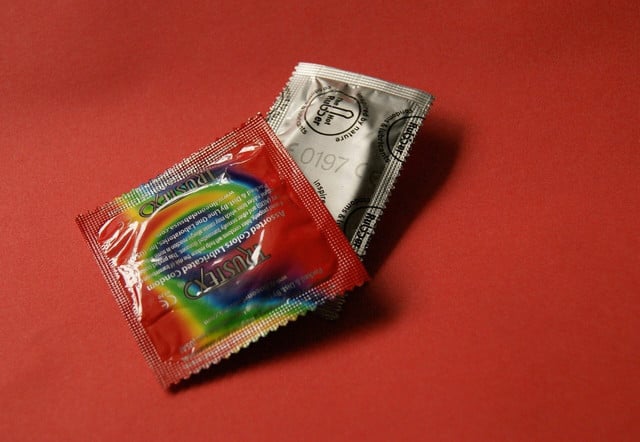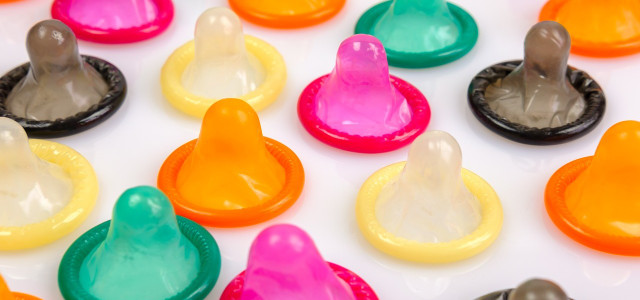Condoms do expire and their packaging should include a printed “best by” date. When practicing safe sex, condom materials, additives and storage methods are all important to take into consideration to avoid accidentally using an expired condom.
Yes, Condoms Do Expire: What to Look out For
The average condom has a shelf life of three to five years from the date they are packaged. Expired condoms greatly decrease in their efficacy. When buying and using condoms, it’s always a good idea to check the expiration date. Especially if you got some free condoms from a health center or you’re relying on your partner’s supply, you never know how old the condoms may be. If your condoms have passed their expiration date, they must be thrown out. Otherwise you risk sexually transmitted infections (STIs) and unwanted pregnancy.
Furthermore, there are a few signs to watch out for even if your condoms are not past their expiration date.
- If the condom wrapper is torn, has holes or is damaged in any way, it’s best not to use it.
- If the wrapper is leaking lubricant, has a foul smell, or is sticky, it is probably expired.
- Lastly, any condoms which are stiff or discolored should be avoided as well.
It’s important to note that condoms can only serve their purpose if they are handled correctly. Common mistakes include using sharp instruments to open condom packages, storing condoms in wallets, or applying them after sex has begun.
Factors That Can Speed up Expiration

(Foto: CC0 / Pixabay / Anqa)
There are several factors which speed up the expiration of your condoms. The best thing you can do to make sure your condoms last the appropriate amount of time is to store them properly. Other factors like the material of the condom and potential additives are good to look out for when considering different condoms, as these influence the longevity of the condoms as well.
-
Storage methods are important in keeping your condoms effective. Condoms can suffer wear and tear over time due to constant friction in wallets, purses, cars and pockets. Of course, it’s okay to bring condoms with you on-the-go. Just make sure not to store your condoms in these spaces for more than a few hours.
- The best place to store your condoms is in a cool, dry and nonabrasive environment like a bedside table drawer.
- Make sure to avoid leaving your condoms in the sun.
- The bathroom is not the best place to store condoms due to humidity and possible chemical contamination.
- Condom materials are also relevant in considering expiration. Of course, the expiration date will take this into account, but it’s worth noting that natural latex and polyurethane condoms typically last around five years. Polyisoprene condoms last up to three years.
- Additives shorten the lifespan of condoms significantly. Chemical additives like spermicide can lower the expiration date by two years for synthetic condoms. As for added lube and flavorings, there is little research regarding their effects on condoms’ shelf life. In general, it’s best to check the packaging for an expiration date, and to make sure none of the additives include chemicals you may be allergic or sensitive to. When using condoms with additives, if there is an unusual odor or texture, throw it out and use a different one.
Tip: Did you know that condoms often are not vegan? Many manufacturers still use a dairy by-product called casein to soften the natural latex. Also, the conditions under which we harvest latex are often harmful to both the environment and the people involved. So why not give sustainable vegan condoms a try? Check out these 5 brands.
Read more:
- Period Panties: Choosing the Best Period Underwear
- Foods that Never Expire: 8 Forever Foods for Your Kitchen
- Best Morning Routine: 10 Tips for Healthy Morning Rituals That Will Kick-Start Your Day
Important Information regarding Health-related Topics.
** Links to retailers marked with ** or underlined orange are partially partner links: If you buy here, you actively support Utopia.org, because we will receive a small part of the sales proceeds. More info.Do you like this post?






